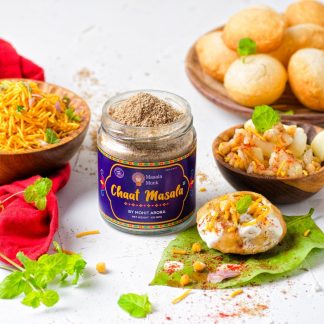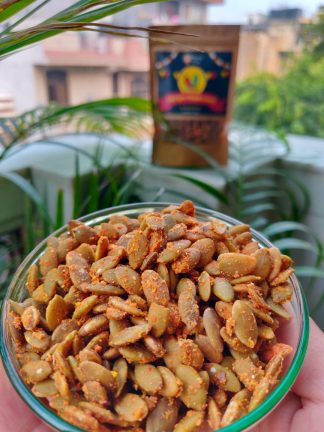
Introduction:
Imagine this: a tiny, unassuming nut that packs a powerful punch of essential nutrients, all beneficial for you and your growing baby. That’s the almond for you – a superfood in its own right, especially during pregnancy. But why are these small, crunchy nuts considered a prenatal dietary powerhouse?
Nutrition during pregnancy isn’t just about eating more; it’s about eating smart. And this is where almonds come into the spotlight. Often overlooked in favor of more elaborate dietary supplements, almonds are nature’s way of providing a dense nutritional package. In every crunchy bite, almonds offer a rich blend of proteins, healthy fats, vitamins, and minerals, all essential for the health and well-being of both mother and baby.
However, the benefits of almonds during pregnancy extend far beyond basic nutrition. From supporting fetal development to managing energy levels, the impacts of these nuts are both profound and far-reaching. It’s no wonder that almonds have been a staple in dietary recommendations for expectant mothers across various cultures.
In this post, we dive deep into the world of almonds and pregnancy. We’ll explore not just the ‘what’ but the ‘why’ – why almonds are a critical component of your pregnancy diet, backed by scientific insights and expert opinions. Whether you’re an almond enthusiast or someone who’s just beginning to explore the nutritional landscape of pregnancy, this post is designed to offer you a comprehensive understanding of how these nuts can play a vital role in your journey towards motherhood.
So, let’s crack open the shell of mystery surrounding almonds and reveal the seven essential benefits they offer during one of life’s most beautiful, yet challenging, phases. Get ready to be surprised, informed, and inspired – all at once!
Benefit 1: Enhanced Fetal Development
When it comes to the miracle of life, every tiny detail matters, especially nutrition. This is where almonds, a nutritional dynamo, play a pivotal role in the enhanced development of your unborn child. The journey of a fetus from a cluster of cells to a fully-formed baby is nothing short of miraculous, and almonds are packed with the essential nutrients to support this incredible journey.
The Power of Folic Acid
Central to the story of almonds and fetal development is folic acid, a B-vitamin critical for the proper formation of the neural tube. The neural tube forms the early brain and spinal cord of the fetus, and deficiencies in folic acid during early pregnancy can lead to serious neural tube defects like spina bifida. Almonds are a significant natural source of this life-sustaining nutrient. By incorporating almonds into your daily diet, you provide your growing baby with the foundational building blocks for healthy brain and spinal cord development.
A Symphony of Nutrients
But the benefits of almonds don’t stop at folic acid. These nuts are a treasure trove of nutrients, each playing its unique part in fetal development. They are rich in calcium, crucial for building strong bones and teeth in your baby. The presence of magnesium in almonds works hand in hand with calcium, not only supporting bone health but also ensuring proper muscle and nerve function.
Then there’s iron, an essential mineral that plays a critical role in the formation of hemoglobin, the protein in red blood cells that carries oxygen to all parts of the body, including the placenta and fetus. Adequate iron intake reduces the risk of low birth weight and premature delivery, ensuring that your baby has a strong start in life.
Omega-3: The Unsung Hero
Another lesser-known but equally important nutrient found in almonds is Omega-3 fatty acids. These are crucial for the development of the baby’s brain and retina, particularly in the third trimester when significant brain growth occurs. Regular consumption of almonds can ensure that your baby’s brain development is on the right track, setting the stage for a lifetime of learning and discovery.
More Than Just Nutrients
Almonds also provide a steady release of energy, which is vital during pregnancy. This slow and sustained energy release is crucial for expectant mothers, helping to manage fatigue and maintain overall well-being. This aspect of almonds is particularly beneficial during the first and third trimesters when energy levels can fluctuate dramatically.
In essence, consuming almonds during pregnancy is like orchestrating a symphony of nutrients, each playing its vital role in ensuring the healthy development of your baby. By choosing to include almonds in your prenatal diet, you’re making a conscious decision to nourish your body with the best nature has to offer, setting the stage for a healthy and happy baby.
Benefit 2: Sustained Energy and Healthy Weight Management
Pregnancy is a time of extraordinary change, where every aspect of a woman’s body is gearing up to support the new life growing within. This process is incredibly energy-intensive. Maintaining a steady energy level while also managing healthy weight gain is crucial for the health of both mother and child. Almonds, in this regard, emerge as a formidable ally.
A Natural Energy Booster
The journey of pregnancy is often marked by fluctuating energy levels. Morning sickness in the first trimester and increased body weight in the later stages can leave expecting mothers feeling drained. Almonds, with their combination of protein, healthy fats, and fiber, offer a perfect solution. These nutrients provide a slow and sustained release of energy, unlike the quick but fleeting boost that comes from sugary snacks. By integrating almonds into your daily diet, you can combat fatigue and maintain steady energy levels throughout the day.
Protein: The Building Block
Protein is vital during pregnancy, not just for the growth and repair of tissues in the mother’s body but also for the baby’s development. Almonds are an excellent source of plant-based protein, making them an ideal snack for expectant mothers. Regular consumption of almonds helps in meeting the increased protein demands of pregnancy, aiding in the healthy development of the baby while also contributing to the mother’s well-being.
Healthy Fats for Weight Management
Managing weight during pregnancy can be a delicate balance. While it’s essential to gain some weight for the baby’s growth, excessive weight gain can lead to complications such as gestational diabetes or hypertension. Almonds are rich in healthy monounsaturated and polyunsaturated fats, which can help in achieving this balance. These fats provide a feeling of fullness, reducing the urge to indulge in unhealthy snacking, and thus assisting in maintaining a healthy pregnancy weight.
The Role of Fiber
The fiber content in almonds is another aspect that aids in weight management. Fiber aids digestion and helps in maintaining a healthy gut, which is crucial during pregnancy. It also contributes to a feeling of fullness, thereby preventing overeating. This, in turn, helps in managing weight effectively, ensuring that the weight gain during pregnancy is gradual and healthy.
Beyond Nutrition: The Psychological Aspect
There’s also a psychological aspect to consider. Knowing that you’re eating something beneficial for both you and your baby can be incredibly empowering. It adds a sense of control and purpose to your dietary choices, which is often appreciated during a time when so much seems out of your control. The simple act of choosing almonds over a less nutritious snack can be a small but significant victory in your day.
In sum, the inclusion of almonds in a pregnancy diet offers a multifaceted approach to sustaining energy and managing weight. It’s not just about the calories or the nutrients – it’s about how these elements work together to support the unique demands of a pregnant body, contributing to overall health and well-being.
Benefit 3: Prevention of Neural Tube Defects
Embarking on the journey of pregnancy brings a heightened sense of responsibility towards the health of the unborn child. One critical aspect of fetal health is the prevention of neural tube defects (NTDs) – serious birth defects of the brain and spine. This is where almonds, with their rich folic acid content, play a crucial role in safeguarding the developing fetus.
Folic Acid: A Vital Nutrient
Folic acid, a form of Vitamin B9, is fundamental in the very early stages of pregnancy, often before many women even realize they are pregnant. It is instrumental in the formation and proper closure of the neural tube, which later develops into the baby’s brain and spinal cord. NTDs, such as spina bifida and anencephaly, can occur in the first month of pregnancy, often before a woman knows she is expecting. This makes the role of folic acid in a pre-pregnancy diet equally significant.
Almonds are a noteworthy source of this essential nutrient. Including almonds in your diet not only before but also during pregnancy, can significantly contribute to the required daily intake of folic acid. This proactive nutritional step is a simple yet powerful way to reduce the risk of neural tube defects.
The Science Behind Folic Acid and NTDs
The evidence supporting the role of folic acid in preventing NTDs is robust and well-documented. Research indicates that adequate folic acid intake can prevent up to 70% of some types of neural tube defects. This is why many health organizations worldwide recommend daily folic acid supplements for women of childbearing age. However, getting folic acid from natural food sources like almonds is also highly beneficial, as it ensures a steady and natural intake of this vital nutrient.
Beyond Prevention: Other Benefits of Folic Acid
Folic acid’s benefits extend beyond the prevention of NTDs. It plays a crucial role in DNA synthesis and repair, encourages normal fetal growth and development, and can prevent low birth weight. It’s also essential for the mother’s health, aiding in the formation of red blood cells, thus preventing maternal anemia, a common condition in pregnancy.
Integrating Almonds into Your Diet
Incorporating almonds into your daily diet can be both delicious and versatile. They can be enjoyed raw as a quick snack, sliced into salads, blended into smoothies, or used as a crunchy topping for yogurt or oatmeal. Given their nutrient density, a small portion can go a long way in meeting your daily nutritional needs.
A Note of Caution
While almonds are beneficial, it’s important to consume them in moderation. They are high in calories and can lead to excessive weight gain if consumed in large quantities. As with any dietary change during pregnancy, it’s advisable to consult with a healthcare provider, especially if you have nut allergies or other dietary restrictions.
Benefit 4: Supports Bone Health
The narrative of pregnancy nutrition takes a turn towards the skeletal framework that supports life itself – the bones. During pregnancy, the demands on a woman’s body to support bone health are twofold: maintaining her own bone density while ensuring the proper bone development of her baby. This is where almonds, a natural reservoir of bone-building nutrients, step in as a vital dietary component.
Calcium: The Cornerstone of Bone Health
Calcium is widely recognized as a key player in building and maintaining strong bones and teeth. For expecting mothers, the requirement for calcium increases significantly, as it is vital for the developing skeletal structure of the fetus. Almonds are a notable source of calcium, providing an easy and natural way to increase calcium intake. Regular consumption of almonds can help meet the heightened calcium needs during pregnancy, ensuring that both mother and baby have strong, healthy bones.
Magnesium and Phosphorus: Supporting Players
The role of almonds in bone health doesn’t end with calcium. These nuts are also rich in magnesium and phosphorus, minerals that work in concert with calcium to bolster bone strength. Magnesium plays a critical role in converting vitamin D into its active form, which in turn enhances calcium absorption in the bones. Phosphorus, on the other hand, is essential for the formation of bone and teeth. Together, these nutrients create a synergy that maximizes bone health and development.
Almonds and Vitamin D
While almonds themselves are not a significant source of Vitamin D, they complement Vitamin D-rich foods or supplements that an expectant mother might be taking. Vitamin D is essential for calcium absorption in the bones, and a combined intake of Vitamin D with calcium-rich foods like almonds can enhance bone health significantly.
Beyond Pregnancy: Long-term Benefits
The benefits of a calcium-rich diet, particularly one inclusive of almonds, extend beyond pregnancy. Adequate calcium intake during pregnancy can reduce the risk of osteoporosis later in life, a condition where bones become weak and brittle. For the baby, proper calcium intake during the fetal stage sets the foundation for lifelong bone health.
How to Include Almonds in Your Diet
Incorporating almonds into your pregnancy diet can be both easy and enjoyable. They can be eaten as a standalone snack, or added to various dishes for extra crunch and flavor. Some creative ways to include almonds in your diet could be through almond-based spreads, almond milk, or using almond flour in baking.
A Balanced Approach
It is important, however, to balance almond consumption with other sources of calcium and maintain a varied diet. Additionally, pregnant women should be mindful of their overall calorie and nutrient intake, and consider speaking with a healthcare provider for personalized dietary advice.
Benefit 5: Iron for Anemia Prevention
Anemia in pregnancy, characterized by a deficiency in red blood cells or hemoglobin, can lead to fatigue, increased risk of infections, and complications during delivery. Almonds emerge as an invaluable dietary ally in this context, thanks to their notable iron content. This section delves into how almonds can play a crucial role in preventing anemia and supporting overall health during pregnancy.
The Essential Role of Iron
Iron is a vital mineral for everyone, but its importance is magnified during pregnancy. It’s a key component of hemoglobin, which carries oxygen in the blood. For a developing fetus, adequate maternal iron is critical for proper growth and development, especially for the brain and blood cells. Pregnant women need more iron to support the increased blood volume, provide for the placenta, and assist in the baby’s growth.
Almonds: A Plant-Based Iron Source
Almonds are a beneficial source of plant-based iron. Including almonds in your diet can help boost your iron intake, which is particularly useful for those who might have dietary restrictions or prefer plant-based nutrition. The iron in almonds, when combined with vitamin C-rich foods, enhances absorption, making it more bioavailable to the body.
Combating Iron-Deficiency Anemia
Iron-deficiency anemia is one of the most common nutritional deficiencies encountered during pregnancy. Regular consumption of iron-rich foods like almonds can play a significant role in preventing this condition. By maintaining adequate iron levels, expecting mothers can avoid the fatigue and weakness associated with anemia, ensuring a more vigorous and healthier pregnancy experience.
Beyond Iron: Other Nutritional Synergies
Almonds don’t just offer iron; they also contain other nutrients that synergistically support iron absorption and overall health. For instance, almonds are rich in fiber, which aids in digestion and ensures optimal utilization of nutrients. They also contain healthy fats, which are essential for the absorption of fat-soluble vitamins.
Practical Ways to Include Almonds in Your Diet
Integrating almonds into your daily diet can be both simple and delicious. They can be consumed as a snack – raw or roasted, added to breakfast cereals, blended into smoothies, or used as a crunchy topping for salads and soups. For a more diverse intake, you can explore almond butter or use almond flour in your baking recipes.
A Note of Caution
While almonds are beneficial, it’s important to be aware of their calorie density and potential allergenic properties. Pregnant women should consume almonds in moderation and consult with a healthcare provider, especially if there are concerns about allergies or specific dietary needs.
Benefit 6: Protection against Allergies
The relationship between maternal diet and the future health of the child is a topic of immense interest and importance. Emerging research suggests that what a mother eats during pregnancy could influence her baby’s susceptibility to allergies. Almonds, with their unique nutritional profile, might play a role in this dynamic, offering protection against allergies for both mother and child.
Understanding the Allergy Connection
Recent studies have started to shed light on how exposure to certain foods in utero can impact a child’s likelihood of developing allergies. The old paradigm of avoiding allergenic foods during pregnancy to prevent allergies in children is being reconsidered. Almonds, as a part of the nut family, were once on the list of foods to avoid. However, new evidence suggests that moderate consumption of nuts during pregnancy could actually help in developing the baby’s immune tolerance to these foods.
Almonds and Immune Tolerance
Almonds contain compounds like vitamin E and antioxidants, which are known to support immune function. By introducing these components during pregnancy, it’s believed that the baby’s immune system can become more accustomed to these substances, potentially reducing the risk of allergic reactions post-birth. This immune tolerance is crucial in the early years of life when the child’s immune system is still developing.
Nutrient-Rich Profile of Almonds
Beyond potential allergy prevention, almonds offer a multitude of nutrients that support a healthy immune system. They are a source of healthy fats, proteins, vitamins like E and B2 (riboflavin), and minerals such as magnesium and zinc. These nutrients play vital roles in maintaining the body’s natural defense mechanisms, crucial for both the expecting mother and the growing fetus.
Practical Considerations for Consumption
Incorporating almonds into a prenatal diet can be done in various ways – snacking on raw or roasted almonds, adding them to smoothies, oatmeal, or yogurt, or using almond flour in baking. For those with a history of nut allergies, it’s important to consult a healthcare provider before adding almonds to the diet.
A Balanced Dietary Approach
While almonds offer potential benefits in allergy prevention, they should be a part of a diverse and balanced diet. Relying solely on almonds for nutritional needs during pregnancy is not advisable. A varied diet ensures a broad spectrum of nutrients, supporting overall health and development.
Benefit 7: Healthy Skin and Hair
The transformative journey of pregnancy is not just internal; it’s also reflected in the external changes a woman experiences, notably in her skin and hair. Almonds, a treasure trove of nutrients like Vitamin E, Omega-3 fatty acids, and biotin, emerge as a nurturing source for maintaining and enhancing maternal skin and hair health during this phase.
The Role of Vitamin E
Vitamin E, abundantly found in almonds, is renowned for its skin-enhancing properties. This powerful antioxidant helps protect skin cells from oxidative stress caused by everyday environmental factors. During pregnancy, hormonal changes can lead to various skin issues, such as increased sensitivity and dryness. The Vitamin E in almonds helps in maintaining skin hydration and elasticity, reducing the risk of stretch marks, and promoting overall skin health.
Omega-3 Fatty Acids for Skin and Hair
The Omega-3 fatty acids in almonds don’t just benefit the developing baby’s brain and eyes; they also contribute to the mother’s skin and hair health. Omega-3s play a role in nourishing the skin, keeping it supple and glowing. They also contribute to hair health, reducing hair fall – a common concern during pregnancy – and giving the hair a healthy, lustrous appearance.
Biotin for Hair Strength
Biotin, another nutrient found in almonds, is often associated with hair and nail health. It aids in building keratin, the protein that forms the structure of hair and nails. Regular intake of almonds can help in strengthening hair, promoting hair growth, and adding to the overall vitality and shine of the hair.
Balancing Hormonal Fluctuations
Pregnancy is a time of significant hormonal fluctuations, which can have various effects on skin and hair. The nutrients in almonds, particularly Vitamin E and Omega-3 fatty acids, can help balance these effects, promoting a healthier complexion and reducing hair issues linked to hormonal changes.
Ways to Include Almonds in Your Beauty Routine
Incorporating almonds into your diet is straightforward – snack on them raw or roasted, add them to your breakfast cereals, or blend them into smoothies. For a topical approach, almond oil can be used as a gentle moisturizer for the skin or a nourishing treatment for hair.
A Note on Allergies and Moderation
As with any dietary addition during pregnancy, moderation is key. While almonds offer tremendous benefits for skin and hair, they should be consumed as part of a varied diet. Additionally, those with nut allergies or specific skin conditions should consult their healthcare provider before making any significant changes to their diet or beauty regimen.
Safety and Consumption Tips
While the benefits of almonds during pregnancy are manifold, navigating the hows and whens of almond consumption is equally important. This section provides essential guidance on safely incorporating almonds into your prenatal diet, ensuring you and your baby reap the maximum benefits while avoiding any potential risks.
Understanding Portion Control
Portion control is key when it comes to consuming almonds during pregnancy. Almonds are nutrient-dense but also high in calories. The recommended serving size is typically about a handful, or approximately 1 ounce (28 grams), which equates to about 23 almonds. This amount ensures you get the necessary nutrients without overindulging in calories.
Addressing Allergy Concerns
If you have a history of nut allergies, it’s crucial to consult with your healthcare provider before adding almonds to your diet. For those without a known allergy, introducing almonds gradually can help monitor any adverse reactions. Remember, every individual’s body responds differently, so personal discretion and medical advice are vital.
The Importance of Variety
While almonds are beneficial, they should not be the sole focus of your diet. A diverse diet is essential for getting a wide range of nutrients during pregnancy. Incorporate a variety of fruits, vegetables, whole grains, lean proteins, and other nuts and seeds alongside almonds to ensure a balanced intake of all necessary nutrients.
Choosing the Right Type of Almonds
Opt for raw or dry-roasted almonds without added salt or sugar to maximize health benefits. While flavored or salted almonds might be tempting, they often contain added ingredients that can negate some of the health benefits. If you’re using almond products, such as almond milk or butter, check for added sugars and preservatives.
Incorporating Almonds into Your Diet
Almonds are incredibly versatile and can be included in your diet in various ways. Eat them raw as a snack, chop and sprinkle them over salads, blend them into smoothies, or use almond flour in baking. You can also explore almond butter as a spread on whole-grain toast or add almond milk to cereals and coffee.
Almonds and Gastrointestinal Comfort
For some, almonds can cause gastrointestinal discomfort, especially when consumed in large quantities. The high fiber content, while generally beneficial, can lead to bloating or gas if your body is not used to it. Starting with a small amount and gradually increasing the intake can help your digestive system adjust.
Storing Almonds Properly
Proper storage of almonds is essential to maintain their nutritional quality. Keep them in a cool, dry place, away from direct sunlight. If you buy almonds in bulk, consider storing a portion in the refrigerator or freezer to extend their freshness.
A Final Note on Moderation and Balance
Always remember, moderation is the cornerstone of any healthy diet, especially during pregnancy. Almonds, when consumed as part of a balanced diet, can offer significant health benefits. However, it’s important to balance their intake with other nutritional needs and consult with healthcare professionals to tailor dietary choices to your specific health circumstances.
Conclusion: Embracing Almonds for a Healthy Pregnancy
As we wrap up our exploration of the myriad benefits of almonds during pregnancy, it’s clear that these tiny nuts are more than just a snack; they’re a powerhouse of nutrition, offering a plethora of health advantages for both mother and baby. From enhancing fetal development to supporting maternal health, the roles of almonds in a prenatal diet are multifaceted and deeply impactful.
Summarizing the Nutritional Journey
Let’s revisit the journey we’ve undertaken. We began by understanding how almonds contribute to enhanced fetal development, thanks to their rich content of folic acid, essential for preventing neural tube defects. We delved into how they provide sustained energy and aid in healthy weight management, crucial aspects of a comfortable and healthy pregnancy. The prevention of anemia through iron, the bolstering of bone health, and the potential protection against allergies highlighted almonds’ diverse nutritional profile.
We then navigated the world of beauty, observing how almonds support healthy skin and hair, counteracting some of the hormonal changes that pregnancy brings. Finally, we discussed practical tips for safely incorporating almonds into your diet, emphasizing the importance of balance, moderation, and variety.
The Power of Informed Choices
This comprehensive exploration underscores the importance of informed dietary choices during pregnancy. Incorporating almonds as part of a balanced diet can significantly contribute to the overall well-being of both the mother and the developing baby. However, as with any dietary change during this delicate phase, consultation with healthcare providers is paramount to ensure that your specific health needs are met.
Encouraging Shared Experiences and Continuous Learning
As you embark on or continue your pregnancy journey, remember that each experience is unique. We encourage you to share your own experiences with almonds and pregnancy nutrition. Your stories can be a source of inspiration and information for other expecting mothers. Moreover, the realm of prenatal nutrition is continually evolving, and staying informed about the latest research and recommendations is key to making the best choices for you and your baby.
A Final Thought
In closing, let’s appreciate the small yet significant role of almonds in the grand adventure of pregnancy. Whether as a nutritious snack, a part of a meal, or a beauty aid, almonds can be a delightful and beneficial addition to your prenatal journey. Here’s to a healthy, happy pregnancy filled with the right balance of nutrition, care, and joy!
10 FAQs About Almonds During Pregnancy
- Is it safe to eat almonds during pregnancy? Yes, eating almonds during pregnancy is generally safe and beneficial. They are rich in essential nutrients vital for both the mother and the developing baby.
- How many almonds should I eat per day while pregnant? The recommended serving size is about a handful, approximately 23 almonds or 1 ounce (28 grams). This provides the nutritional benefits without excess calorie intake.
- Can eating almonds help with fetal development? Absolutely. Almonds are rich in folic acid, which is crucial for the healthy development of the baby’s brain and spinal cord.
- Do almonds help in managing pregnancy weight? Yes, almonds can help in managing pregnancy weight. They are high in protein and healthy fats, which can provide a feeling of fullness and help in weight management.
- Can almonds prevent pregnancy-related anemia? Almonds are a good source of iron, which is essential in preventing anemia, a common condition during pregnancy.
- Are there any risks associated with eating almonds during pregnancy? If you have a nut allergy or specific dietary restrictions, it’s important to consult your healthcare provider before adding almonds to your diet.
- How can I include almonds in my pregnancy diet? Almonds can be eaten raw as a snack, added to cereals, blended into smoothies, or used in baking. Almond butter and almond milk are also great options.
- Can eating almonds during pregnancy help my skin and hair? Yes, almonds are rich in Vitamin E and Omega-3 fatty acids, which are great for skin and hair health during pregnancy.
- Do almonds help in reducing the risk of birth defects? Yes, the folic acid in almonds is known to reduce the risk of certain birth defects, such as neural tube defects.
- What is the best way to store almonds? Almonds should be stored in a cool, dry place. You can also keep them in the refrigerator or freezer to extend their freshness.
Blog Tags for the Post
pregnancy nutrition, almonds benefits, healthy pregnancy, fetal development, weight management, anemia prevention, pregnancy diet, prenatal care, skin health, hair care during pregnancy, natural remedies















